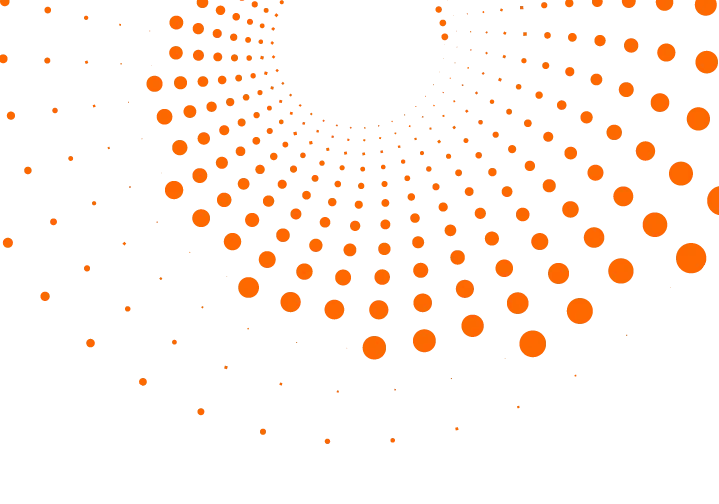Gartner’s Top Strategic Technology Trends for 2025 provide a roadmap for the future of technology. The report highlights artificial intelligence, automation, and cybersecurity as transformative market trends for the coming year.
This article explores AI-related trends: agents, governance platforms, and security against disinformation. Read on!
What the trends are about
Gartner lists three primary trends: AI utilization, new frontiers of computing, and human-machine synergy.
Regarding AI use, Gartner maps the tool’s growing influence, addresses its ethical and governance challenges, and draws attention to the fight against disinformation.
Advances in computing —post-quantum cryptography, invisible environmental intelligence, energy efficiency, and hybrid computing— are reshaping security and driving the solution of complex problems.
Finally, the relationship between humans and machines has transitioned from science fiction to reality. A new paradigm is changing the future of work and enabling innovative experiences, with major developments in space computing, multifunctional robots, and neurological enhancement.
Gartner’s Top Strategic Technology Trends for 2025: Artificial Intelligence
Artificial intelligence holds a prominent spot in Gartner’s trends for 2025, with three of the consulting firm’s ten key predictions focusing directly on the topic: agents and their autonomy, governance platforms for compliance and transparency, and strategies to combat disinformation spread through fake news, deep fakes, phishing, and other tactics.
Find out more about these trends below:
Agentic AI
Gartner predicts that by 2028, AI Agents will handle at least 15% of decision-making, up from 0% today. Moreover, within four years, 33% of applications are expected to incorporate agents, with 15% of decisions made autonomously.
The key to understanding agents lies in one word: autonomy. Agents are software programs that can make decisions and execute actions independently.
Through AI techniques such as memory, planning, and environmental perception, agents’ autonomy boosts productivity through rapid analysis and intelligent forecasting.
Therefore, a fully functional AI Agent possesses the autonomy to learn from its environment, perform tasks, and create plans independently.
Use cases for agents
- Assisting professionals in executing complex projects
- Automating customer service with data analysis and decision-making capabilities
- Analyzing organizations quickly through data analysis and predictive intelligence
Challenges facing agents
- Lack of governance
- Unreliable decision-making
- Dependence on low-quality data
- Resistance from professionals
- AI-driven security attacks
AI governance platforms
Artificial intelligence governance platforms are urgently needed to ensure transparency and compliance with safety standards. Monitoring and auditing decisions can mitigate risks such as privacy breaches.
The issue is so vital that, in the same study, Gartner predicts that adoption of this type of platform could trigger an increase of more than 30% in customer trust and a 25% improvement in compliance performance by 2028.
Security against disinformation
According to Gartner, by 2028, 50% of companies will implement solutions against disinformation. Key elements to this process include disinformation security, authenticity verification, and false content monitoring.
Security techniques enable detecting, monitoring, and preventing media that spread disinformation. Such content often spreads online via phishing schemes and fake news.
Other trends: new frontiers in computing and the human-machine relationship
The Gartner report highlights other trends like new frontiers in computing—addressing security and environmental impact— and evolving human-machine relationships that enable novel interactions and experiences.
Post-quantum cryptography
In its study, Gartner forecasts that by 2029, advancements in quantum computing will render most asymmetric cryptography insecure. Hence, today’s conventional cryptography could quickly become obsolete.
Companies are advised to proactively safeguard their data while embracing quantum computing.
Invisible ambient intelligence
Low-cost tags and sensors will enable invisible environmental intelligence, allowing large-scale tracking and integration into daily life.
By 2027, this technology will solve immediate problems like checking stock and logistics for perishable goods and improving visibility and efficiency.
Energy-efficient computing
In 2024, one of the biggest concerns for IT companies was their carbon footprint, with AI being a significant contributor due to its high energy consumption.
Conversely, new technologies such as GPUs and quantum computing offer more energy-efficient solutions and should be prioritized by large technology companies.
Hybrid computing
Computing is constantly evolving, with options such as CPUs, GPUs, edge devices, ASICs, neuromorphics, and quantum computing. Hybrid computing combines these different mechanisms, storage, and networking to solve increasingly complex problems.
The hybrid approach allows technologies like AI to break past their limitations, creating highly efficient and more effective innovation environments than conventional ones.
Spatial computing
Gartner predicts that the space computing market will expand from $110 billion to $1.7 trillion over the next decade. This type of computing promises to merge the physical world with technologies like augmented and virtual reality.
In the coming years, spatial computing will enhance corporate effectiveness by streamlining workflows and fostering collaboration among professionals.
Polyfunctional robots
Gartner predicts that by 2030, 80% of people will interact with robots on a daily basis. As their name suggests, polyfunctional robots are capable of performing a variety of tasks, and are gradually replacing specialized robots.
Polyfunctional robots are designed to operate alongside humans, enabling rapid implementation, scalability, and increased efficiency. Robots could handle tasks like transporting and packing goods in warehouses.
Neurological enhancement
Neurological enhancement leverages brain-machine interfaces to read and decode brain activity, improving human cognitive capabilities.
Unidirectional or bidirectional technologies hold great potential across various areas, such as healthcare, where they are expected to reduce the residency period for surgeons by a whole year.
StackSpot AI and agents
Given the potential of AI Agents for decision-making, data analysis, automating processes, and more, we have created a tool that enhances the development cycle and delivers results with more efficiency, quality, and confidence, directly benefiting the business.
This is how StackSpot AI, our multi-agent platform, was born. You can create, use, and share customized agents tailored to your software development needs.
AI Agents perform tasks autonomously or semi-autonomously and can make decisions, plan actions, and interact with their environment. Additionally, agents are a versatile solution, adhering to security protocols and configurable to suit different contexts.

The power of agents lies in their ability to automate processes, personalize interactions and optimize decision-making, leading to enhanced productivity and operational efficiency.
Want to get to know AI Agents up close? Contact our team of experts and schedule a demo.
Conclusion
Gartner’s main strategic technology trends for 2025 put the spotlight on AI Agents, which hold significant transformative potential for companies and can help CIOs realize their Gen AI vision.
Personalized AI Agents work to automate processes, tailor interactions, and optimize decision-making. With this potential, these tools can learn and adjust to different contexts, enhancing the development cycle.
AI trends, new computing frontiers, and the human-machine relationship are essential to shaping the future of technology. They impact computing routines directly or indirectly while driving greater security and agility.
Did you enjoy the content about “Gartner’s Top Strategic Technology Trends for 2025: AI and Agents Take Center Stage”? Feel free to leave a comment on Gartner’s trends for next year.

 Skip to content
Skip to content


